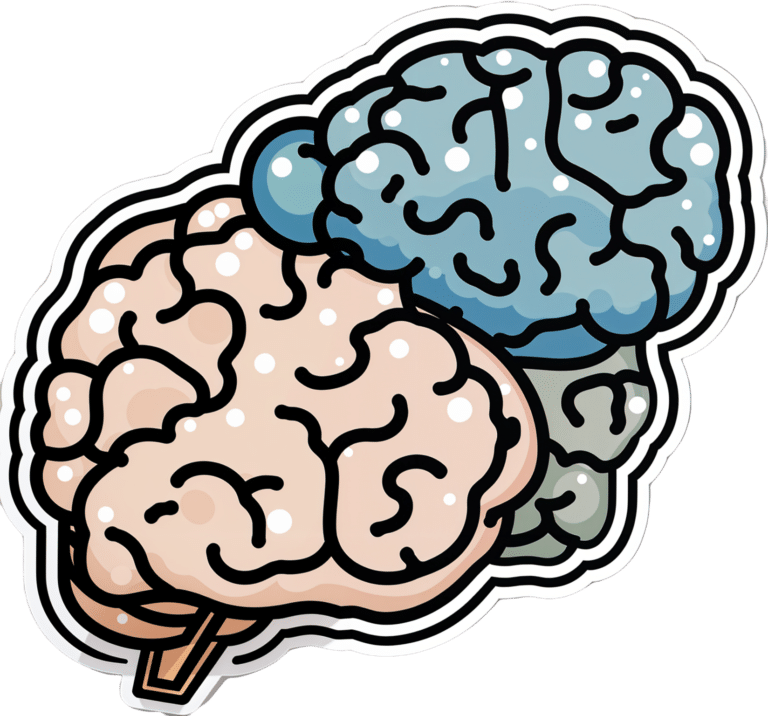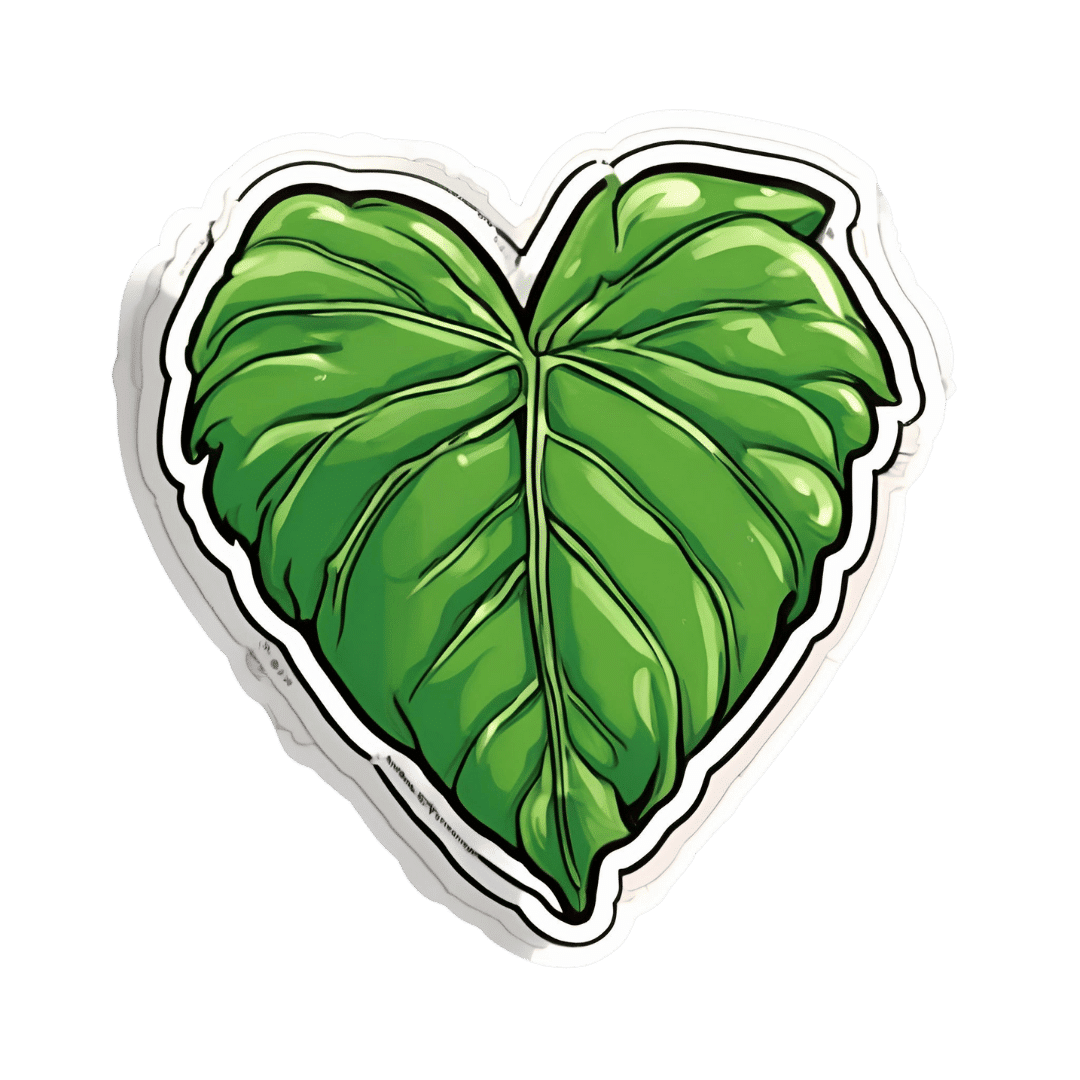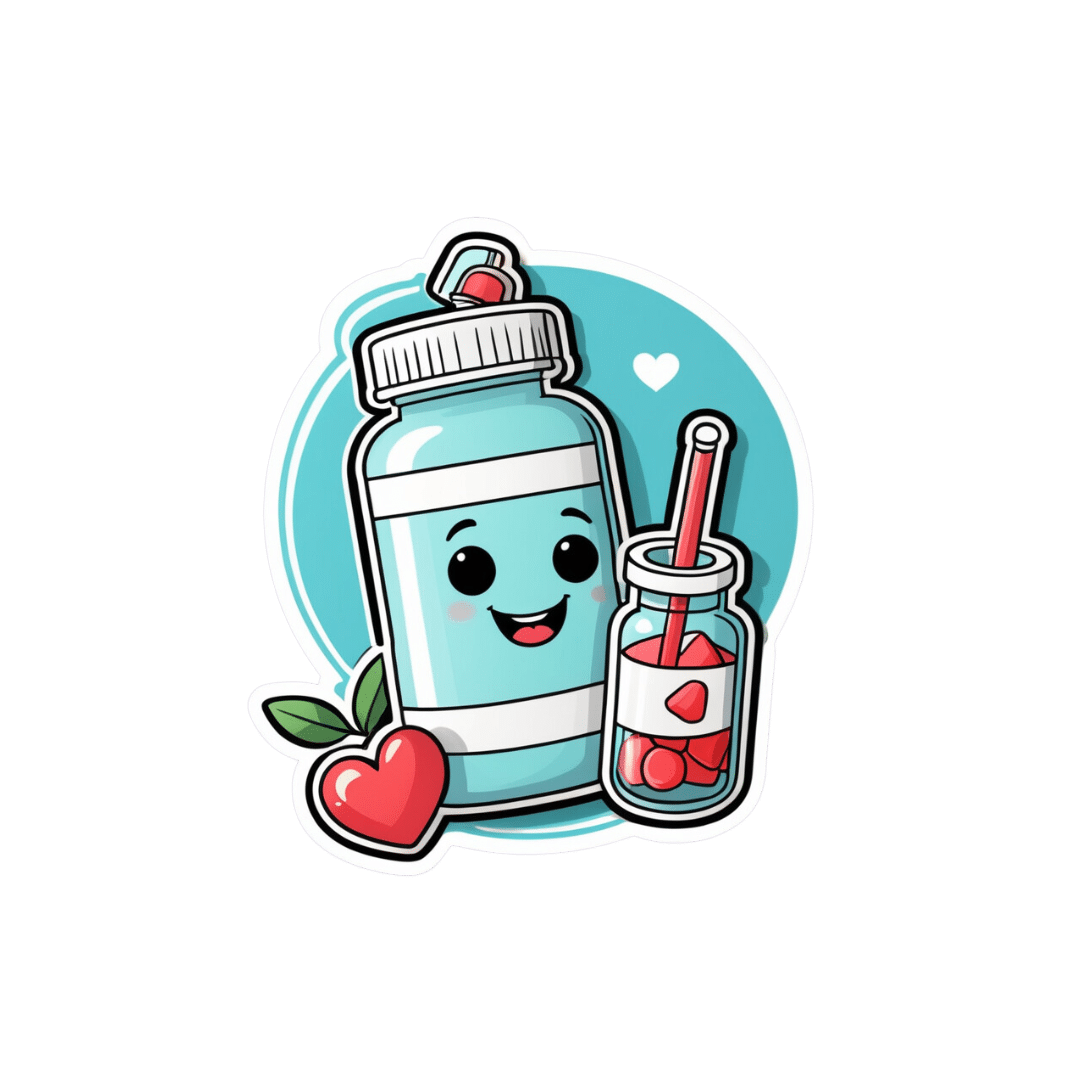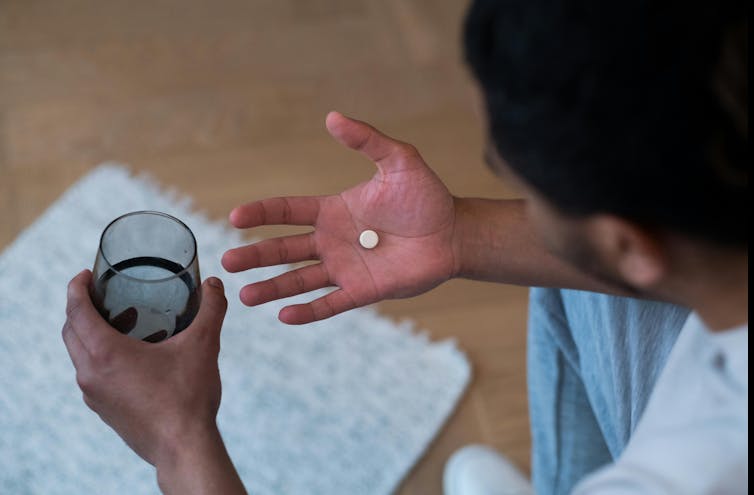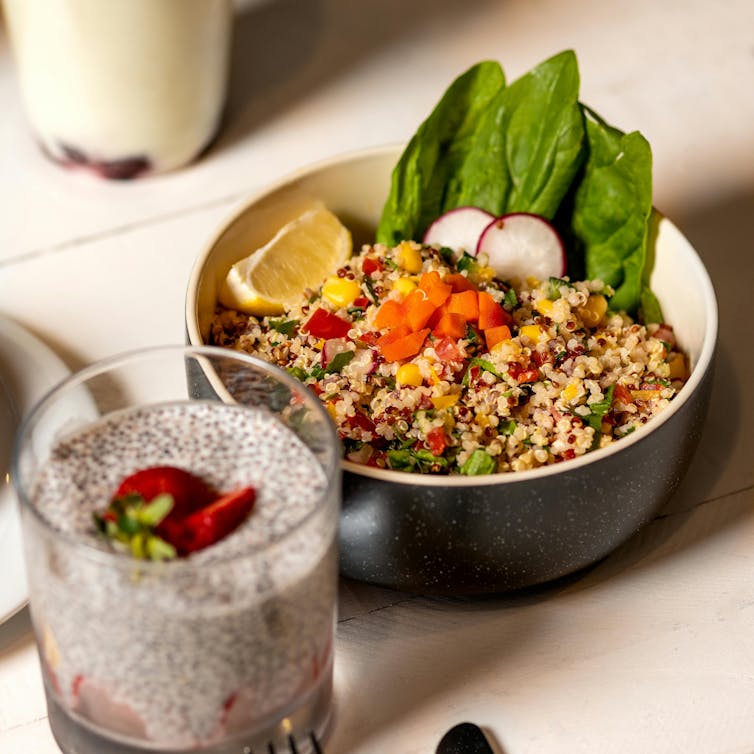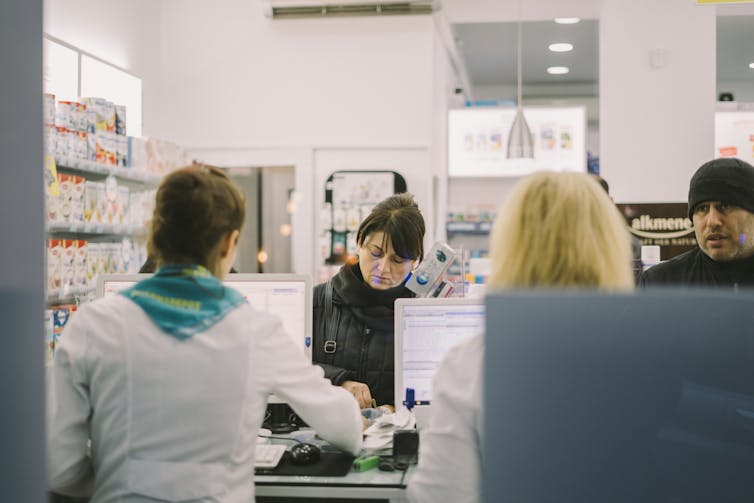
Best morning routine?
10almonds is reader-supported. We may, at no cost to you, receive a portion of sales if you purchase a product through a link in this article.
You’ve Got Questions? We’ve Got Answers!
Q: Best morning routine?
A: The best morning routine is whatever makes you feel most ready to take on your day!
This one’s going to vary a lot—one person’s morning run could be another person’s morning coffee and newspaper, for example.
In a nutshell, though, ask yourself these questions:
- How long does it take me to fully wake up in the morning, and what helps or hinders that?
- When I get out of bed, what do I really need before I can take on my day?
- If I could have the perfect morning, what would it look like?
- What can evening me do, to look after morning me’s best interests? (Semi-prepare breakfast ready? Lay out clothes ready? Running shoes? To-Do list?)
Don’t Forget…
Did you arrive here from our newsletter? Don’t forget to return to the email to continue learning!
Recommended
Learn to Age Gracefully
Join the 98k+ American women taking control of their health & aging with our 100% free (and fun!) daily emails:
-
Kava vs Anxiety
10almonds is reader-supported. We may, at no cost to you, receive a portion of sales if you purchase a product through a link in this article.
Kava, sometimes also called “kava kava” but we’re just going to call it kava once for the sake of brevity, is a heart-shaped herb that
bestows the powers of the Black Pantheris popularly enjoyed for its anxiolytic (anxiety-reducing) effects. Despite the similarity of the name in many languages, it is unrelated to coffee (except insofar as they are both plants), and its botanical name is Piper methysticum.Does it work?
Yes! At least in the short-term; more on that later.
Firstly, you may be wondering how it works; it works by its potentiation of GABA receptors in the brain. GABA (or gamma-aminobutyric acid, to give it its full name), as you may recall, is a neurotransmitter that is associated with feelings of calm; we wrote about it here:
So, what does “potentiation of GABA receptors” mean? It means… Scientists don’t for 100% sure know how it works yet, but it does make GABA receptors fire more. It’s possible that to some degree GABA fits the “molecular lock” of the receptors and causes them to say “GABA is here”; it’s also possible that they just make them more sensitive to the real GABA that is there, or there could be another explanation as yet undiscovered. Either way, it means that taking kava has a similar effect to having increased GABA levels in the brain:
As for how much to use, 20–300mg appears to be an effective dose, and most sources recommend 80–250mg:
Kava as a Clinical Nutrient: Promises and Challenges
This review of clinical trials found that it was more effective than placebo in only 3 of 7 trials; specifically, it was beneficial in the short-term and not in the long-term. For these reasons, the researchers concluded:
❝Kava Kava appears to be a short-term treatment for anxiety, but not a replacement for prolonged anti-anxiety use. Although not witnessed in this review, liver toxicity is especially possible if taken longer than 8 weeks.❞
Another review of clinical trials found better results over the course of 11 clinical trials, though again, short-term treatment only was considered to be where the “safe and effective” claim can be placed:
❝Compared with placebo, kava extract appears to be an effective symptomatic treatment option for anxiety. The data available from the reviewed studies suggest that kava is relatively safe for short-term treatment (1 to 24 weeks), although more information is required. Further rigorous investigations, particularly into the long-term safety profile of kava are warrant❞
Source: Kava extract for treating anxiety
Is it safe?
Nope! It has been associated with liver damage:
The likely main mechanism of toxicity is that it simply monopolizes the liver’s metabolic abilities, meaning that while it’s metabolizing the kava, it’s not metabolizing other things (such as alcohol or other medications), which will then build up, and potentially overwhelm the liver:
Constituents in kava extracts potentially involved in hepatotoxicity: a review
However, traditionally-prepared kava has not had the same effect as modern extracts; at first it seemed the difference was the traditional aqueous extracts vs modern acetonic/ethanolic extracts, but eventually that was found not to be the case, as toxicity occurred with industrial aqueous extracts too. The conclusion so far is that it is about the quality of the source ingredients, and the problems inherent to mass-production:
Meanwhile, short-term use doesn’t seem to have this problem, if you’re not drinking alcohol or taking medications that affect the liver:
Mechanisms/risk factors – kava-associated hepatotoxicity ← you’ll need to scroll down to 4.2.4 to read about this
Want to try it?
If the potential for hepatotoxicity doesn’t put you off, here’s an example product on Amazon ← we do not recommend it, but we are not the boss of you, and maybe you’re confident about your liver and want to use it only very short-term?
Take care!
Share This Post
-
When Age Is A Flexible Number
10almonds is reader-supported. We may, at no cost to you, receive a portion of sales if you purchase a product through a link in this article.
Aging, Counterclockwise!
In the late 1970s, Dr. Ellen Langer hypothesized that physical markers of aging could be affected by psychosomatic means.
Note: psychosomatic does not mean “it’s all in your head”.
Psychosomatic means “your body does what your brain tells it to do, for better or for worse”
She set about testing that, in what has been referred to since as…
The Counterclockwise Study
A small (n=16) sample of men in their late 70s and early 80s were recruited in what they were told was a study about reminiscing.
Back in the 1970s, it was still standard practice in the field of psychology to outright lie to participants (who in those days were called “subjects”), so this slight obfuscation was a much smaller ethical aberration than in some famous studies of the same era and earlier (cough cough Zimbardo cough Milgram cough).
Anyway, the participants were treated to a week in a 1950s-themed retreat, specifically 1959, a date twenty years prior to the experiment’s date in 1979. The environment was decorated and furnished authentically to the date, down to the food and the available magazines and TV/radio shows; period-typical clothing was also provided, and so forth.
- The control group were told to spend the time reminiscing about 1959
- The experimental group were told to pretend (and maintain the pretense, for the duration) that it really was 1959
The results? On many measures of aging, the experimental group participants became quantifiably younger:
❝The experimental group showed greater improvement in joint flexibility, finger length (their arthritis diminished and they were able to straighten their fingers more), and manual dexterity.
On intelligence tests, 63 percent of the experimental group improved their scores, compared with only 44 percent of the control group. There were also improvements in height, weight, gait, and posture.
Finally, we asked people unaware of the study’s purpose to compare photos taken of the participants at the end of the week with those submitted at the beginning of the study. These objective observers judged that all of the experimental participants looked noticeably younger at the end of the study.❞
Remember, this was after one week.
Her famous study was completed in 1979, and/but not published until eleven years later in 1990, with the innocuous title:
Higher stages of human development: Perspectives on adult growth
You can read about it much more accessibly, and in much more detail, in her book:
Counterclockwise: A Proven Way to Think Yourself Younger and Healthier – by Dr. Ellen Langer
We haven’t reviewed that particular book yet, so here’s Linda Graham’s review, that noted:
❝Langer cites other research that has made similar findings.
In one study, for instance, 650 people were surveyed about their attitudes on aging. Twenty years later, those with a positive attitude with regard to aging had lived seven years longer on average than those with a negative attitude to aging.
(By comparison, researchers estimate that we extend our lives by four years if we lower our blood pressure and reduce our cholesterol.)
In another study, participants read a list of negative words about aging; within 15 minutes, they were walking more slowly than they had before.❞
Read the review in full:
Aging in Reverse: A Review of Counterclockwise
The Counterclockwise study has been repeated since, and/but we are still waiting for the latest (exciting, much larger sample, 90 participants this time) study to be published. The research proposal describes the method in great detail, and you can read that with one click over on PubMed:
It was approved, and has now been completed (as of 2020), but the results have not been published yet; you can see the timeline of how that’s progressing over on ClinicalTrials.gov:
Clinical Trials | Ageing as a Mindset: A Counterclockwise Experiment to Rejuvenate Older Adults
Hopefully it’ll take less time than the eleven years it took for the original study, but in the meantime, there seems to be nothing to lose in doing a little “Citizen Science” for ourselves.
Maybe a week in a 20 years-ago themed resort (writer’s note: wow, that would only be 2004; that doesn’t feel right; it should surely be at least the 90s!) isn’t a viable option for you, but we’re willing to bet it’s possible to “microdose” on this method. Given that the original study lasted only a week, even just a themed date-night on a regular recurring basis seems like a great option to explore (if you’re not partnered then well, indulge yourself how best you see fit, in accord with the same premise; a date-night can be with yourself too!).
Just remember the most important take-away though:
Don’t accidentally put yourself in your own control group!
In other words, it’s critically important that for the duration of the exercise, you act and even think as though it is the appropriate date.
If you instead spend your time thinking “wow, I miss the [decade that does it for you]”, you will dodge the benefits, and potentially even make yourself feel (and thus, potentially, if the inverse hypothesis holds true, become) older.
This latter is not just our hypothesis by the way, there is an established potential for nocebo effect.
For example, the following study looked at how instructions given in clinical tests can be worded in a way that make people feel differently about their age, and impact the results of the mental and/or physical tests then administered:
❝Our results seem to suggest how manipulations by instructions appeared to be more largely used and capable of producing more clear performance variations on cognitive, memory, and physical tasks.
Age-related stereotypes showed potentially stronger effects when they are negative, implicit, and temporally closer to the test of performance. ❞
(and yes, that’s the same Dr. Francesco Pagnini whose name you saw atop the other study we cited above, with the 90 participants recreating the Counterclockwise study)
Want to know more about [the hard science of] psychosomatic health?
Check out Dr. Langer’s other book, which we reviewed recently:
The Mindful Body: Thinking Our Way to Chronic Health – by Dr. Ellen Langer
Enjoy!
Share This Post
-
Why do I need to take some medicines with food?
10almonds is reader-supported. We may, at no cost to you, receive a portion of sales if you purchase a product through a link in this article.
Have you ever been instructed to take your medicine with food and wondered why? Perhaps you’ve wondered if you really need to?
There are varied reasons, and sometimes complex science and chemistry, behind why you may be advised to take a medicine with food.
To complicate matters, some similar medicines need to be taken differently. The antibiotic amoxicillin with clavulanic acid (sold as Amoxil Duo Forte), for example, is recommended to be taken with food, while amoxicillin alone (sold as Amoxil), can be taken with or without food.
Different brands of the same medicine may also have different recommendations when it comes to taking it with food.
Ron Lach/Pexels Food impacts drug absorption
Food can affect how fast and how much a drug is absorbed into the body in up to 40% of medicines taken orally.
When you have food in your stomach, the makeup of the digestive juices change. This includes things like the fluid volume, thickness, pH (which becomes less acidic with food), surface tension, movement and how much salt is in your bile. These changes can impair or enhance drug absorption.
Eating a meal also delays how fast the contents of the stomach move into the small intestine – this is known as gastric emptying. The small intestine has a large surface area and rich blood supply – and this is the primary site of drug absorption.
Eating a meal with medicine will delay its onset. Farhad/Pexels Eating a larger meal, or one with lots of fibre, delays gastric emptying more than a smaller meal. Sometimes, health professionals will advise you to take a medicine with food, to help your body absorb the drug more slowly.
But if a drug can be taken with or without food – such as paracetamol – and you want it to work faster, take it on an empty stomach.
Food can make medicines more tolerable
Have you ever taken a medicine on an empty stomach and felt nauseated soon after? Some medicines can cause stomach upsets.
Metformin, for example, is a drug that reduces blood glucose and treats type 2 diabetes and polycystic ovary syndrome. It commonly causes gastrointestinal symptoms, with one in four users affected. To combat these side effects, it is generally recommended to be taken with food.
The same advice is given for corticosteroids (such as prednisolone/prednisone) and certain antibiotics (such as doxycycline).
Taking some medicines with food makes them more tolerable and improves the chance you’ll take it for the duration it’s prescribed.
Can food make medicines safer?
Ibuprofen is one of the most widely used over-the-counter medicines, with around one in five Australians reporting use within a two-week period.
While effective for pain and inflammation, ibuprofen can impact the stomach by inhibiting protective prostaglandins, increasing the risk of bleeding, ulceration and perforation with long-term use.
But there isn’t enough research to show taking ibuprofen with food reduces this risk.
Prolonged use may also affect kidney function, particularly in those with pre-existing conditions or dehydration.
The Australian Medicines Handbook, which guides prescribers about medicine usage and dosage, advises taking ibuprofen (sold as Nurofen and Advil) with a glass of water – or with a meal if it upsets your stomach.
If it doesn’t upset your stomach, ibuprofen can be taken with water. Tbel Abuseridze/Unsplash A systematic review published in 2015 found food delays the transit of ibuprofen to the small intestine and absorption, which delays therapeutic effect and the time before pain relief. It also found taking short courses of ibuprofen without food reduced the need for additional doses.
To reduce the risk of ibuprofen causing damage to your stomach or kidneys, use the lowest effective dose for the shortest duration, stay hydrated and avoid taking other non-steroidal anti-inflammatory medicines at the same time.
For people who use ibuprofen for prolonged periods and are at higher risk of gastrointestinal side effects (such as people with a history of ulcers or older adults), your prescriber may start you on a proton pump inhibitor, a medicine that reduces stomach acid and protects the stomach lining.
How much food do you need?
When you need to take a medicine with food, how much is enough?
Sometimes a full glass of milk or a couple of crackers may be enough, for medicines such as prednisone/prednisolone.
However, most head-to-head studies that compare the effects of a medicine “with food” and without, usually use a heavy meal to define “with food”. So, a cracker may not be enough, particularly for those with a sensitive stomach. A more substantial meal that includes a mix of fat, protein and carbohydrates is generally advised.
Your health professional can advise you on which of your medicines need to be taken with food and how they interact with your digestive system.
Mary Bushell, Clinical Associate Professor in Pharmacy, University of Canberra
This article is republished from The Conversation under a Creative Commons license. Read the original article.
Share This Post
Related Posts
-
Oranges vs Lemons – Which is Healthier?
10almonds is reader-supported. We may, at no cost to you, receive a portion of sales if you purchase a product through a link in this article.
Our Verdict
When comparing oranges to lemons, we picked the oranges.
Why?
In the battle of these popular citrus fruits, there is a clear winner on the nutritional front.
Things were initially promising for lemons when looking at the macros—lemons have a little more fiber while oranges are slightly higher in carbs, but the differences are small and both are very healthy in this regard.
However, alas for this writer who prefers sour fruits to sweet ones (I’m sweet enough already), the micronutrient profiles tell a different story:
In terms of vitamins, oranges have more of vitamins A, B1, B2, B3, B5, B9, E, and choline. In contrast, lemons have a (very) little more vitamin B6. You might be wondering about vitamin C, since both fruits are famous for that—they’re equal on vitamin C. But, with that stack we listed above, oranges clearly win the vitamin category easily.
As for minerals, oranges boast more calcium, copper, magnesium, potassium, selenium, and zinc, while lemons have more iron, manganese, and phosphorus.
Technically lemons also have more sodium, but the numbers are truly miniscule (by coincidence, we discover upon grabbing a calculator, you’d need to eat approximately your own bodyweight in whole lemons to get to the RDA of sodium—and that’s to reach the RDA, not the upper healthy limit) so we’ll overlook the tiny sodium difference as irrelevant. Which means, while closer than the vitamins category, oranges win on minerals with a 6:3 lead over lemons.
Both fruits offer generous helpings of flavonoids and other polyphenols such as naringenin and hesperidin, which have anti-inflammatory properties and more specifically can also reduce allergy symptoms (unless, of course, you are allergic to citrus fruits, which is a relatively rare but extant allergy).
In short: as ever, enjoy both; diversity is great for the health. But if you want to maximize the nutrients you get, it’s oranges.
Want to learn more?
You might like to read:
Lemons vs Limes – Which is Healthier?
Take care!
Don’t Forget…
Did you arrive here from our newsletter? Don’t forget to return to the email to continue learning!
Learn to Age Gracefully
Join the 98k+ American women taking control of their health & aging with our 100% free (and fun!) daily emails:
-
Goji Berries: Which Benefits Do They Really Have?
10almonds is reader-supported. We may, at no cost to you, receive a portion of sales if you purchase a product through a link in this article.
Are Goji Berries Really A Superfood?
Goji berries are popularly considered a superfood, and sold for everything from anti-aging effects, to exciting benefits* that would get this email directed to your spam folder if we described them.
*We searched so you don’t have to: there doesn’t seem to be much research to back [that claim that we can’t mention], but we did find one paper on its “invigorating” benefits for elderly male rats. We prefer to stick to human studies where we can!
So how does the science stack up for the more mainstream claims?
Antioxidant effects
First and most obvious for this fruit that’s full of helpful polysaccharides, carotenoids, phenolic acids, and flavonoids, yes, they really do have strong antioxidant properties:
Immune benefits
Things that are antioxidant are generally also anti-inflammatory, and often have knock-on benefits for the immune system. That appears to be the case here.
For example, in this small-but-statistically-significant study (n=60) in healthy adults (aged 55–72 years)
❝The GoChi group showed a statistically significant increase in the number of lymphocytes and levels of interleukin-2 and immunoglobulin G compared to pre-intervention and the placebo group, whereas the number of CD4, CD8, and natural killer cells or levels of interleukin-4 and immunoglobulin A were not significantly altered. The placebo group showed no significant changes in any immune measures.
Whereas the GoChi group showed a significant increase in general feelings of well-being, such as fatigue and sleep, and showed a tendency for increased short-term memory and focus between pre- and post-intervention, the placebo group showed no significant positive changes in these measures.❞
“GoChi” here is a brand name for goji berries, and it’s not clear from the abstract whether the company funded the study:
Here’s another study, this time n=150, and ages 65–70 years old. This time it’s with a different brand (“Lacto-Wolfberry”, a milk-with-goji supplement drink) and it’s also unclear whether the company funded the study. However, taking the data at face value:
❝In conclusion, long-term dietary supplementation with Lacto-Wolfberry in elderly subjects enhances their capacity to respond to antigenic challenge without overaffecting their immune system, supporting a contribution to reinforcing immune defense in this population. ❞
In other words: it allowed those who took it to get measurably more benefit from the flu vaccinations that they received, without any ill effects.
Anticancer potential
This one’s less contentious (the immune benefits seemed very credible; we’d just like to see more transparent research to say for sure), so in the more clearly-evidenced case against cancer we’ll just drop a few quick studies, clipped for brevity:
- Goji berry (Lycium barbarum) inhibits the proliferation, adhesion, and migration of oral cancer cells
- A closer look at immunomodulatory properties of goji berries extract in human colon cancer cells
- Lycium barbarum polysaccharides induce apoptosis in human prostate cancer cells and inhibits prostate cancer growth
- Identification of goji berry cyclic peptides and anticervical carcinoma activity
- Antiproliferative effects of Lycium barbarum’s (goji berry) fractions on breast cancer Cell Lines
You get the idea: it helps!
Bonus benefit for the eyes
Goji berries also help against age-related macular degeneration. The research for this is in large part secondary, i.e. goji berries contain things x, y, and z, and then separate studies say that those things help against age-related macular degeneration.
We did find some goji-specific studies though! One of them was for our old friends the “Lacto-Wolfberry” people and again, wasn’t very transparent, so we’ll not take up extra time/space with that one here.
Instead, here’s a much clearer, transparent, and well-referenced study with no conflicts of interest, that found:
❝Overall, daily supplementation with Goji berry for 90d improves MPOD by increasing serum Z levels rather than serum L levels in early AMD patients. Goji berry may be an effective therapeutic intervention for preventing the progression of early AMD.❞
- MPOD = Macular Pigment Optical Density, a standard diagnostic tool for age-related macular degeneration
- AMD = Age-related Macular Degeneration
(that whole paper is very compelling reading, if you have time)
If you want a quicker read, we offer:
How To Avoid Age-Related Macular Degeneration
and also…
Where to get goji berries?
You can probably find them at your local health food store, if not the supermarket. However, if you’d like to buy them online, here’s an example product on Amazon for your convenience
Enjoy!
Don’t Forget…
Did you arrive here from our newsletter? Don’t forget to return to the email to continue learning!
Learn to Age Gracefully
Join the 98k+ American women taking control of their health & aging with our 100% free (and fun!) daily emails:
-
Improve Your Insulin Sensitivity!
10almonds is reader-supported. We may, at no cost to you, receive a portion of sales if you purchase a product through a link in this article.
We’ve written before about blood sugar management, for example:
10 Ways To Balance Blood Sugars ← this one really is the most solid foundation possible; if you do nothing else, do these 10 things!
And as for why we care:
Good (Or Bad) Health Starts With Your Blood
…because the same things that cause type 2 diabetes, go on to cause many other woes, with particularly strong comorbidities in the case of Alzheimer’s disease and other dementias, as well as heart disease of various kinds, and a long long laundry list of immune dysfunctions / inflammatory disorders in general.
In short, if you can’t keep your blood sugars even, the rest of your health will fall like so many dominoes.
Getting a baseline
Are you counting steps? Counting calories? Monitoring your sleep? Heart rate zones? These all have their merits:
- Steps: One More Resource Against Osteoporosis!
- Calories: Is Cutting Calories The Key To Healthy Long Life?
- Sleep: A Head-To-Head Of Google and Apple’s Top Apps For Getting Your Head Down
- Heart Rate Zones: Heart Rate Zones, Oxalates, & More
But something far fewer people do unless they have diabetes or are very enthusiastic about personal health, is to track blood sugars:
Here’s how: Track Your Blood Sugars For Better Personalized Health
And for understanding some things to watch out for when using a continuous glucose monitor:
Continuous Glucose Monitors Without Diabetes: Pros & Cons
Writer’s anecdote: I decided to give one a try for a few months, and so far it has been informative, albeit unexciting. It seems that with my diet (mostly whole-foods plant based, though I do have a wholegrain wheat product about twice per week (usually: flatbread once, pasta once) which is… Well, we could argue it’s whole-food plant based, but let’s be honest, it’s a little processed), my blood sugars don’t really have spikes at all; the graph looks more like gently rolling low hills (which is good). However! Even so, by experimenting with it, I can see for myself what differences different foods/interventions make to my blood sugars, which is helpful, and it also improves my motivation for intermittent fasting. It also means that if I think “hmm, my energy levels are feeling low; I need a snack” I can touch my phone to my arm and find out if that is really the reason (so far, it hasn’t been). I expect that as I monitor my blood sugars continuously and look at the data frequently, I’ll start to get a much more intuitive feel for my own blood sugars, in much the same way I can generally intuit my hormone levels correctly after years of taking-and-testing.
So much for blood sugars. Now, what about insulin?
Step Zero
If taking care of blood sugars is step one, then taking care of insulin is step zero.
Often’s it’s viewed the other way around: we try to keep our blood sugars balanced, to reduce the need for our bodies to produce so much insulin that it gets worn out. And that’s good and fine, but…
To quote what we wrote when reviewing “Why We Get Sick” last month:
❝Dr. Bikman makes the case that while indeed hyper- or hypoglycemia bring their problems, mostly these are symptoms rather than causes, and the real culprit is insulin resistance, and this is important for two main reasons:
- Insulin resistance occurs well before the other symptoms set in (which means: it is the thing that truly needs to be nipped in the bud; if your fasting blood sugars are rising, then you missed “nipping it in the bud” likely by a decade or more)
- Insulin resistance causes more problems than “mere” hyperglycemia (the most commonly-known result of insulin resistance) does, so again, it really needs to be considered separately from blood sugar management.
This latter, Dr. Bikman goes into in great detail, linking insulin resistance (even if blood sugar levels are normal) to all manner of diseases (hence the title).
You may be wondering: how can blood sugar levels be normal, if we have insulin resistance?
And the answer is that for as long as it is still able, your pancreas will just faithfully crank out more and more insulin to deal with the blood sugar levels that would otherwise be steadily rising. Since people measure blood sugar levels much more regularly than anyone checks for actual insulin levels, this means that one can be insulin resistant for years without knowing it, until finally the pancreas is no longer able to keep up with the demand—then that’s when people finally notice.❞
You can read the full book review here:
Now, testing for insulin is not so quick, easy, or accessible as testing for glucose, but it can be worthwhile to order such a test—because, as discussed, your insulin levels could be high even while your blood sugars are still normal, and it won’t be until the pancreas finally reaches breaking point that your blood sugars show it.
So, knowing your insulin levels can help you intervene before your pancreas reaches that breaking point.
We can’t advise on local services available for ordering blood tests (because they will vary depending on location), but a simple Google search should suffice to show what’s available in your region.
Once you know your insulin levels (or even if you don’t, but simply take the principled position that improving insulin sensitivity will be good regardless), you can set about managing them.
Insulin sensitivity is important, because the better it is (higher insulin sensitivity), the less insulin the pancreas has to make to tidy up the same amount of glucose into places that are good for it to go—which is good. In contrast, the worse it is (higher insulin resistance), the more insulin the pancreas has to make to do the same blood sugar management. Which is bad.
What to do about it
We imagine you will already be eating in a way that is conducive to avoiding or reversing type 2 diabetes, but for anyone who wants a refresher,
See: How To Prevent And Reverse Type 2 Diabetes
…which yes, as well as meaning eating/avoiding certain foods, does recommend intermittent fasting. For anyone who wants a primer on that,
See: Intermittent Fasting: Methods & Benefits
There are also drugs you may want to consider:
Metformin Without Diabetes, For Weight-Loss & More
And “nutraceuticals” that sound like drugs, for example:
Glutathione’s Benefits: The Usual And The Unique ← the good news is, it’s found in several common foods
You may have heard the hype about “nature’s Ozempic”, and berberine isn’t exactly that (works in mostly different ways), but its benefits do include improving insulin sensitivity:
Berberine For Metabolic Health
Lastly, while eating for blood sugar management is all well and good, do be aware that some things affect insulin levels without increased blood sugar levels. So even if you’re using a CGM, you may go blissfully unaware of an insulin spike, because there was no glucose spike on the graph—and in contrast, there could even be a dip in blood sugar levels, if you consumed something that increased insulin levels without providing glucose at the same time, making you think “I should have some carbs”, which visually on the graph would even out your blood sugars, but invisibly, would worsen the already-extant insulin spike.
Read more about this: Strange Things Happening In The Islets Of Langerhans: When Carbs, Proteins, & Fats Switch Metabolic Roles
Now, since you probably can’t test your insulin at a moment’s notice, the way to watch out for this is “hmm, I ate some protein/fats (delete as applicable) without carbs and my blood sugars dipped; I know what’s going on here”.
Want to know more?
We heartily recommend the “Why We Get Sick” book we linked above, as this focuses on insulin resistance/sensitivity itself!
However, a very good general primer on blood sugar management (and thus, by extension, at least moderately good insulin management), is:
Glucose Revolution: The Life-Changing Power of Balancing Your Blood Sugar – by Jessie Inchauspé
Enjoy!
Don’t Forget…
Did you arrive here from our newsletter? Don’t forget to return to the email to continue learning!
Learn to Age Gracefully
Join the 98k+ American women taking control of their health & aging with our 100% free (and fun!) daily emails:

